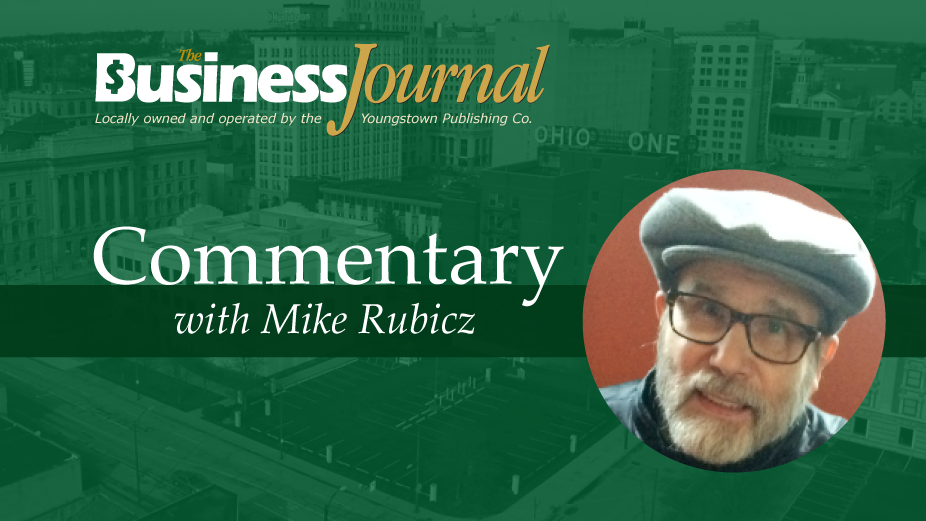Commentary: Pro Act Gives Workers a Voice in the Mahoning Valley’s Future
Editor’s Note: The following commentary was submitted by Mike Rubicz, retired past president of United Steelworkers Local 1375 and active member of the Alliance of Retired Americans and the Steelworkers Organization of Active Retirees.
A strong and growing union movement is good for workers and all Americans. The Pro Act – H.R. 842 and companion bill S.B 420 – was introduced in Congress in early February to help strengthen and rebuild unions in our country and was recently passed in the House of Representatives.
The Pro Act will protect and expand the freedom to organize, enabling more workers to organize and bargain for their rights. It strengthens penalties against employers and corporate officials who violate the National Labor Relations Act. It also ensures first contracts when workers choose to organize and protects the right to strike and protest.
The long history of unions in the Mahoning Valley shows how important unions are. For many years, good union jobs helped make the Valley a good place to live, work and raise a family. But when corporations moved the mills and plants to China, Mexico and elsewhere, that hurt the Valley because of the damage to its economic and social fabric.
It wasn’t just good wages, conditions and benefits that unions provided in the Valley. They also became the backbone for many community services, including:
• Employee Assistance Programs that helped workers with alcohol, drug and family counseling.
• Millions of dollars donated from union workers by regular paycheck deductions to the United Way of Youngstown and the Mahoning Valley.
• Apprenticeships and skilled worker training programs for workers.
• Food drives to provide sustaining food, as well as Christmas and Thanksgiving dinners for the unemployed.
• Representation at workers’ compensation and Social Security disability hearings.
• Help and counseling with retirement and insurance problems.
• Union members had the time to be deacons and ushers in their churches, as well as coaches and supporters of football, baseball and soccer teams for their young girls and boys.
Unions also have many affiliated organizations that are active in our local communities, like the Coalition of Labor Union Women, the A. Phillip Randolph Institute, the Coalition of Black Trade Unionists, as well as many retiree groups like the Steelworkers Organization of Active Retirees and the Alliance of Retired Americans. In fact, it was the ARA union retiree affiliates in the Valley who met with and shared their experiences of advocating for pension protections and pushed for a Congressional hearing when the Delphi bankruptcy robbed non-union and management workers of their full pensions.
Unions have also been important for older workers and retirees because they have higher wages and can negotiate benefits such as health care, pensions and employer contributions to retirement plans which lead to a higher income in retirement. Often union retirement plans include defined pension plans, which ensure lifelong retirement income.
As corporations have restructured or gone bankrupt and eliminated jobs, local and national unions have fought both in their contracts and with rallies to protect workers and retirees. Unions do this despite being limited in their ability to fight by unfavorable National Labor Relations Board rulings on unions’ abilities to represent retirees.
Retirees in the Mahoning Valley have a history of fighting for the retirement income they earned at their jobs. In the mid 1980s, LTV Corp. retirees and the late former U.S. Sen. Howard Metzenbaum, D-Ohio, were instrumental in passing the Pension Benefit Guarantee Corp.. Again, in 2002 after the LTV bankruptcy, LTV retirees campaigned to protect their benefits. The salaried retirees at Delphi Packard have been conducting a years long fight to get the full amount of the pension benefits.
Wages nationally are stagnant and union membership has dropped to around 12%, down from a high of 35% in the 1950s and ’60s. The workers’ share of the wealth of the country has been dropping, while the share of the top 1% is rapidly growing. Yet nearly half (48%) of all workers surveyed say they would vote for a union if given the opportunity. Approval of unions is at 65%, higher than it’s been since the early 2000s.
The Pro Act is instrumental in workers regaining an equitable share of corporate profits and being treated with respect and dignity on the job. The Pro Act will give voice to working men and women in determining the economic direction of the Valley by gaining recognition for the value each of us adds to the products and services that are produced here.
The Mahoning Valley and the United States need a reboot toward union growth with the help of the Pro Act.
Copyright 2024 The Business Journal, Youngstown, Ohio.


